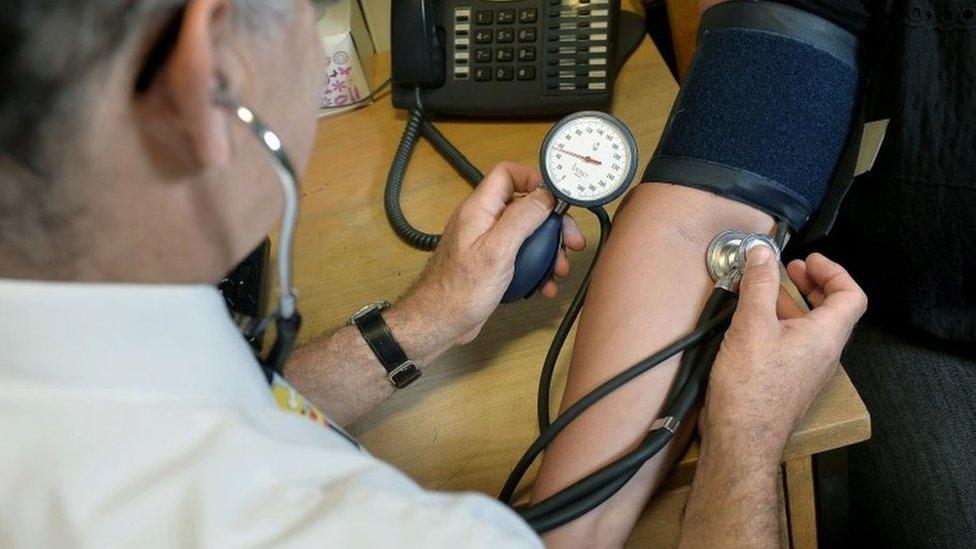NHS 'poor’ on treating deadly illnesses
- Published

The NHS lags behind other countries when it comes to treating common, life-threatening illnesses, an independent analysis produced for the BBC says.
The report, external - to mark the NHS's 70th birthday - said the UK was a "below-average" performer on preventing deaths from heart attacks, strokes and cancer.
But it does get less funding than services in the other 18 nations studied, the experts pointed out.
The analysis also said there were some "definite strengths".
These included providing "unusually good financial protection" from the consequences of ill-health and being relatively efficient.
The experts behind the analysis - one of five produced to mark the anniversary, on 5 July - described the NHS as a "perfectly ordinary" service produced for a "middling level of cost".
It contrasted this with the boast by Nye Bevan, the minister who oversaw the creation of the NHS in 1948, that the service was the "envy of the world", at a time when few countries had a universal health system.
"We run a health system with very scarce resources in terms of staff and equipment and achieve poor outcomes in some vital areas like cancer survival," said Nigel Edwards, chief executive of the Nuffield Trust think tank.
His team worked with experts at the King's Fund, Health Foundation and Institute for Fiscal Studies to look at key issues facing the NHS at this key milestone.
Alongside this, they have produced reports looking a finances, social care, technology and the health of the nation, for the BBC.
The topics will be discussed on the BBC Two show NHS at 70 - Live on Tuesday at 20:00.
If you can't see the NHS Tracker, click or tap here, external.
How the NHS is lagging on the key killers
The think tanks looked at performance on the 12 most common causes of death. It found the NHS performed worse than average on eight of them:
Breast cancer
Colorectal cancer
Lung cancer
Pancreatic cancer
Lung disease
Respiratory infections (such as pneumonia)
Stroke
Heart attacks
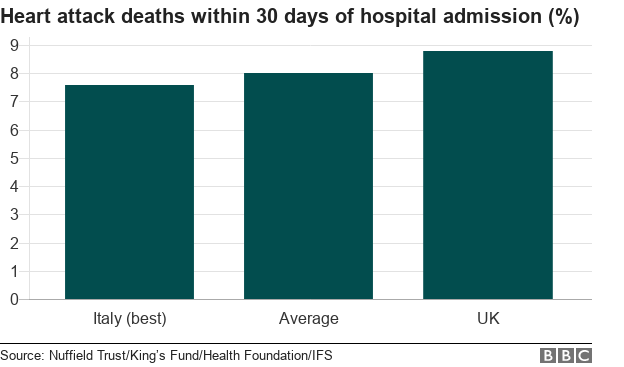
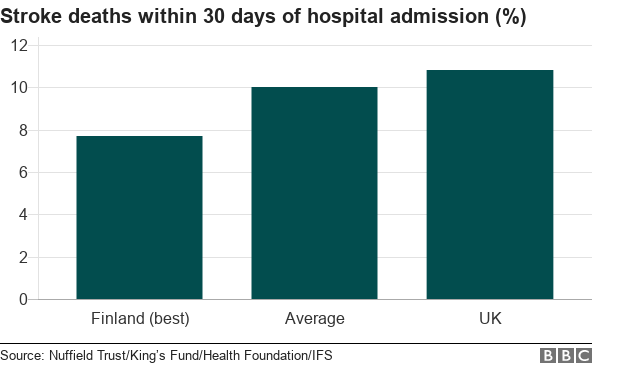
The NHS also had consistently higher rates of death for babies at birth or just after and in the first month of life.
But there were some encouraging signs - it was performing better on kidney disease in terms of transplants and diabetes by preventing amputations, for example.
There was also lower rates of suicides. The picture on dementia was unclear, the report.
The experts said societal factors, such as high income inequality or poor health of the population, may also be influencing the poor performance.
Are we getting health care on the cheap?
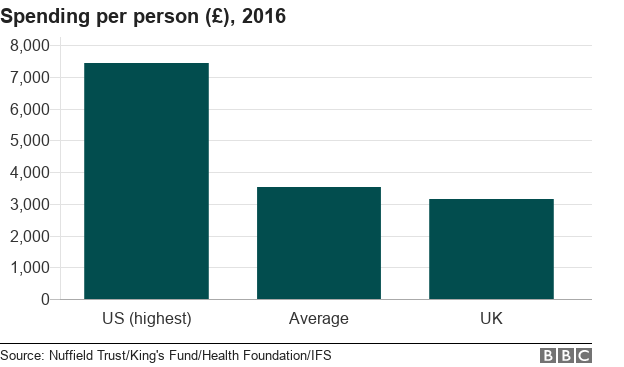
The analysis said it seemed "plausible" that poor performance was to some extent a consequence of relatively low levels of funding that meant there was fewer resources.
Just over £3,100 per person per year is spent on health care in the UK, compared with an average of £3,500.
This meant there were fewer doctors and nurses per head than in many countries.
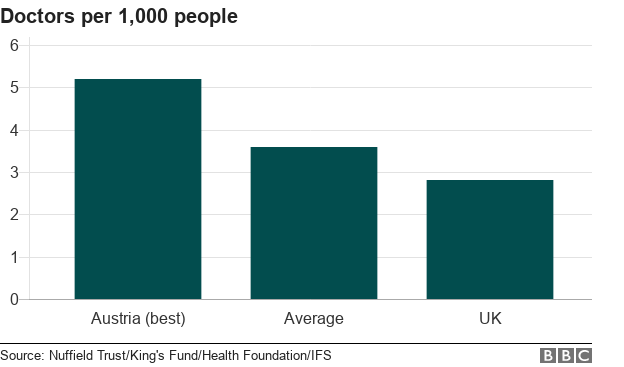
It also said the health service had "very low levels" of hospital beds and the lowest levels of CT and MRI scanners.
The experts blamed this on a lack of investment, saying austerity had "bitten hard".
Since 2010, the budget rises in the NHS have hovered between 1% and 2% a year - compared with the close to 4% it has traditionally enjoyed.
But we don't need to worry about cost
The most positive element of the international comparison by far was that which related to affordability.
Because of the nature of the NHS, the authors said, it provided good financial protection against the consequences of ill-health.
For example, it had the lowest proportion of people who skipped medicines due to cost - 2.3% compared with a 7.2% average - and pretty low numbers who missed consultations for financial reasons.
It was also among the best for proportion of income spent on health care.
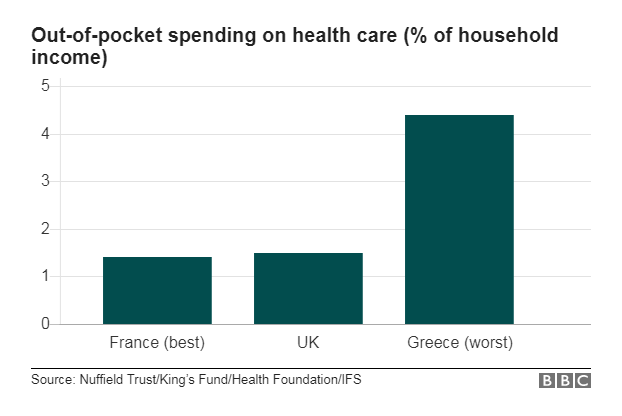
On accessibility, the report said waiting times in the NHS were roughly in line with others, while patient experience compared well.
Vaccination rates against illnesses such as measles and flu were high.
Jennifer Dixon, of the Health Foundation, said the UK should be "proud" cost was not something people feared.
But she added: "If we want to hold our head up high next to our European neighbours, we can and must do better."
The Department for Health and Social Care said the analysis contrasted with a Commonwealth Fund report that rated the NHS the "best and safest" system in the world.
A spokeswoman said survival rates were improving for a number of conditions and the extra funding recently announced - the budget will grow by £20bn a year in England by 2023 - would help make even more progress and "secure its future".

What questions do you have about the report? Let us know using the form below. A selection of them will be answered today on the BBC News Channel at 11:30 and 17:30 BST.
If you are reading this page on the BBC News app, you will need to visit the mobile version of the BBC website to submit your question on this topic.
- Published26 April 2018
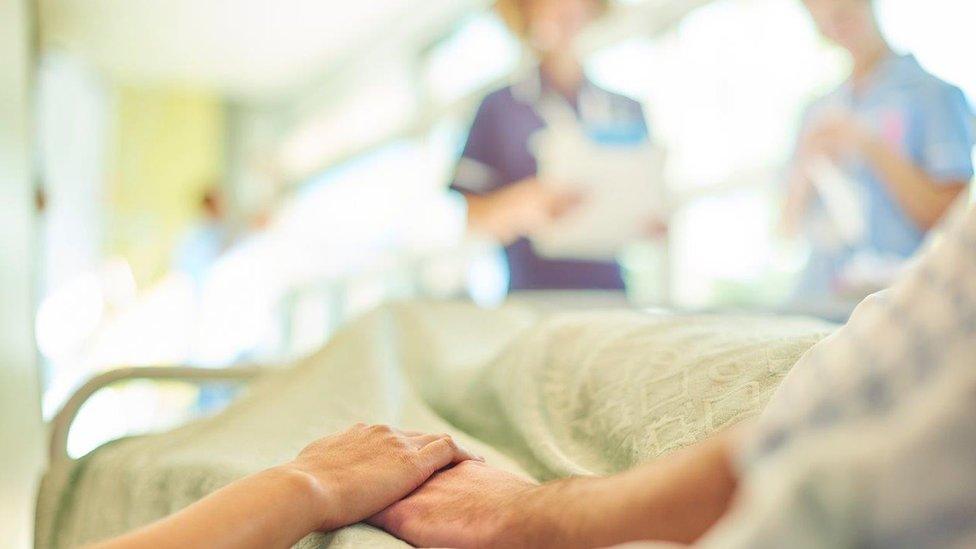
- Published26 April 2018
- Published27 March 2018
